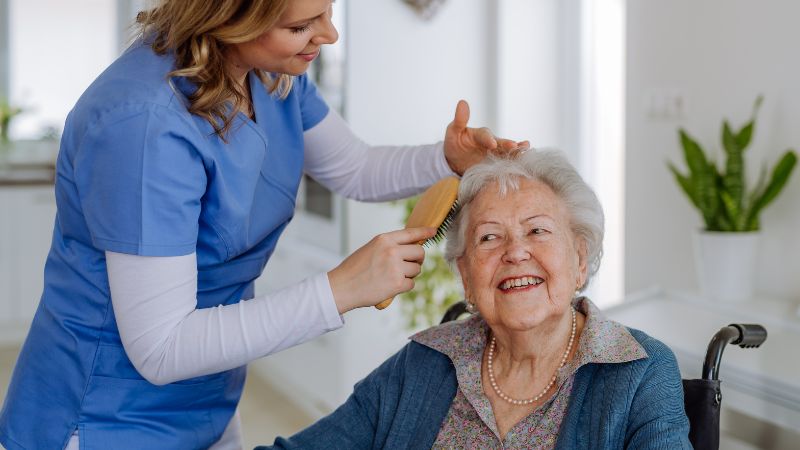
Fraudsters target older adults to con them of their hard-earned savings. A widespread and fast-growing form of elder abuse, financial scams can leave seniors in dire straits. Financial scams, while prevalent, can be avoided by becoming familiar with the common types of foul play.
Financial scams can be defined as illegal actions that improperly use a senior’s financial assets, like money or property. As mentioned, financial scams are no stranger to the older population. Last year alone, slightly over 90,000 seniors were victims to financial scams and lost $1.7 billion.
Why are the elderly primary targets for financial scams?
Seniors who are perceived as vulnerable are prime targets for financial scammers. These elderly individuals may live in isolation and feel lonely, be physically or mentally disabled, or have recently lost a spouse. Aging victims of fraud may also be unfamiliar with managing their own finances.
Who are the scam artists behind the financial scams?
Fraudsters who prey on the elderly pose as a trustworthy helper. Scammers might be strangers, such as telemarketers or people who work in the trades, like carpenters, plumbers, or shopkeepers. If the crook works at a bank, she may have the ability to manipulate records to conceal her tracks.
People with whom the senior has a relationship can also attempt to defraud the older individual. Friends, relatives, doctors, accountants, and lawyers can try to deceive the senior. Even paid or volunteer caregivers have been known to swindle elderly care recipients out of their money.
Scammers behind the con games are difficult to apprehend, mainly because they have access to paperwork that appears to give them the legal authority to take action. An example of such documentation is the power of attorney. Swindlers may also hold authorizing signature cards.
What are the most common financial scams that target older people?
Fraud against the elderly varies widely. Unlawful conduct can range from outrightly taking cash from seniors to using technology to manipulate older adults into revealing personal or financial information. Some victims of financial scams pay for services or products but do not receive them.
1. Government Imposter Scams
Posing as officials from the Internal Revenue Service (IRS) or Medicare, swindlers involved in government imposter scams call unsuspecting seniors. The fraudsters claim the senior hasn’t paid taxes, demand payment immediately and, if refused, threaten arrest. Or they may threaten to cut off Medicare if personal information is not revealed.
2. Social Security Spoofing Scams
Social security spoofing scams involve imposters posing as officials from the Social Security Administration. The criminal tells the senior her Social Security number has been suspended due to suspicious activity and asks her to confirm it. The crook gets away with identity theft.
3. Sweepstakes Scams
Winning a sweepstakes is rare, but sweepstake scams go on for months. The scam runs as follows: the fraudster claims the senior won a prize but must pay a significant amount of cash upfront to claim it. The prize is never delivered, and some tricksters continuously demand money for months.
4. Phishing Scams
Criminals send fake emails or texts to vulnerable seniors with the intent to steal their valuable personal information. Scams include fake emails appearing like they’re from a senior’s bank, requesting an update of information. If information is unwittingly provided, the scammer commits identity theft.
5. Fraudulent Legal Document Scams
Scammers are known to conceal their illegal activities by procuring legal documents, such as power of attorney, a will, or other legal document, giving them authority over the senior’s property. The swindlers coerce the senior to sign the paperwork through a show of intimidation, lies, or outright threats.
6. Home Repair Scams
Seniors who have recently been widowed or who live in neighborhoods with a high proportion of elderly individuals may become prey to the home repair scam. Scammers appear at the senior’s front door, suggesting the roof needs to be fixed or the drainpipe must be unclogged.
Upfront payment for the home repairs is required. Later, the fraudsters claim a more serious home maintenance issue has developed and demand an even higher sum. The work performed is shoddy and may include “fixes,” such as painting the roof to make it appear in good condition.
Home repair scams do not stop at the front door. Fraudsters disguised as tradespeople may start a conversation with the senior at her front door in an effort to distract her. A second or third criminal partner enters the home to steal valuables, from money to jewelry.
7. Computer Tech Support Scams
Seniors who are technologically unsavvy may be a victim of computer tech support scams. A popup message appears on the computer screen, notifying the senior her device needs to be fixed. Upon calling the support number, the scammer gains remote control of the computer and bank accounts.
Falling victim to a financial scam can cause seniors to lose money that may never be recovered. It’s important to be aware of scams as a means to stay protected. Caregivers should be background-checked, too, like they are at Assisting Hands Home Care, a home care agency serving seniors.

As a reputable senior care agency with teams of professional caregivers who are licensed, bonded, and insured, we give families and their senior loved ones maximum peace of mind. Our goal is to match the most compatible caregivers with the seniors we serve and provide optimum care at home.
Assisting Hands Home Care services are comprehensive. We provide support with the activities of daily living, such as personal hygiene tasks, transportation, and grocery shopping. Caregivers are available for 24-hour home care, dementia care, after-surgery care, and hospice home care, among other forms of nonmedical care.
When you need home care that you can trust, choose Assisting Hands Home Care. As an established home care agency, we’ve supported countless seniors living in Deerfield, Buffalo Grove, Grayslake, Highland Park, Lake Forest, Lake Zurich, Libertyville, Lincolnshire, Mundelein, Round Lake Beach, Vernon Hills, IL, and surrounding communities. Contact us today at (224) 268-9068 to set up an in-home consult and start quality nonmedical home health care















